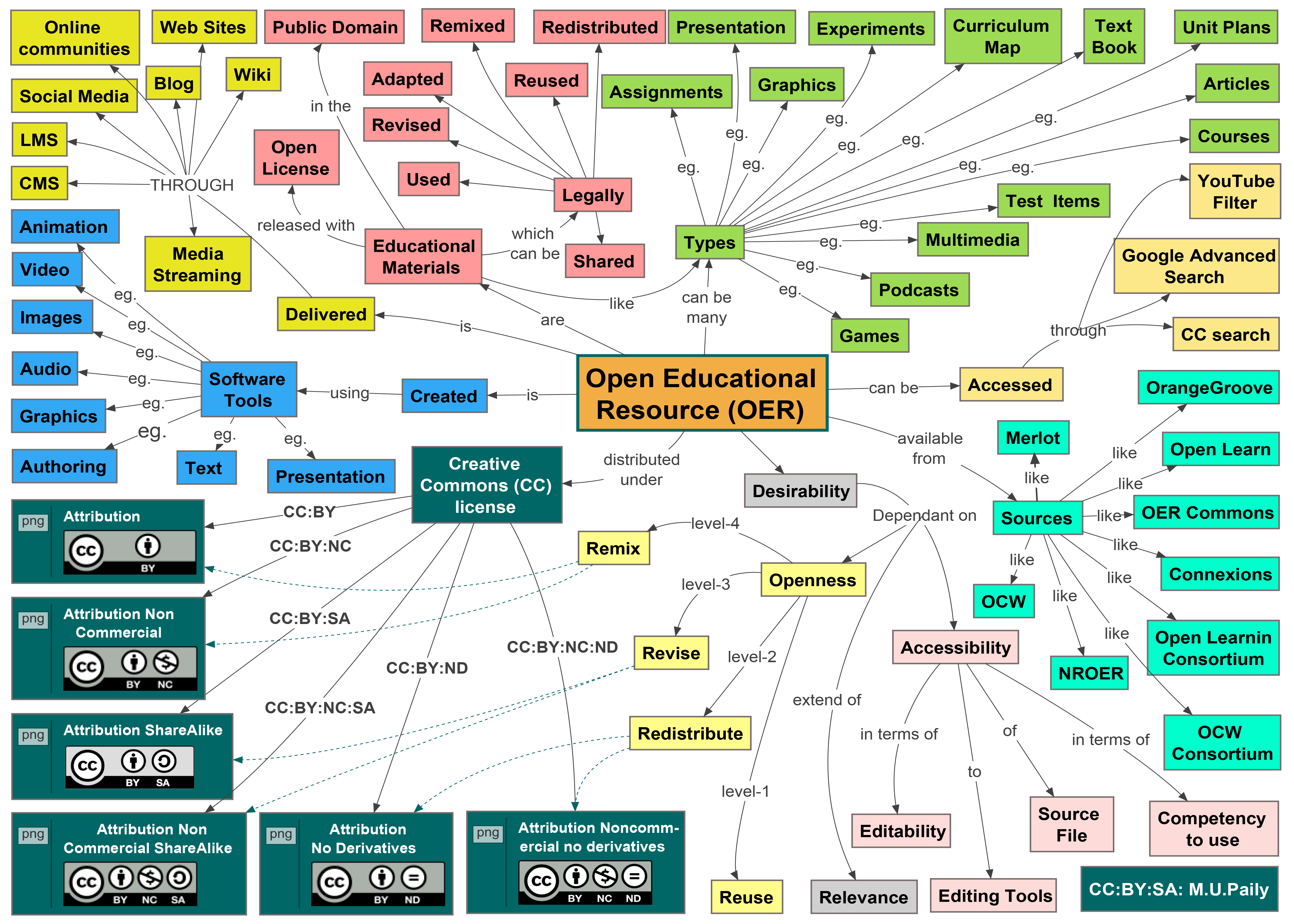
the Creative Commons Attribution-Share Alike 4.0 International license.
So, I’ve gained a bit of reputation for myself as being an OER person for Political Science, which makes sense, because I’m constantly banging on about it to anyone who will listen- on Twitter, at conferences, on my campus, and now on this blog. I’ve been working on teaching with OER (Open Educational Resources) for 5 over five years now, and in that time, I’ve seriously fallen in love. It hasn’t always been smooth (the first OER I tried to author is so bad, I won’t even link to it, but you can read all about just how bad it was here), but it has led me to a much-needed (r)evolution of my approach to teaching, which is still ongoing. It’s made me a better researcher, too- I would likely not have stumbled into the worlds of Open Access and Open Data without exploring OER, nor would I have published research on it (it’s solidly half of my research agenda now). And that’s all in addition to the fact that I know my students all have zero-cost access to the materials they need to learn in my classes.
So I’m clearly hooked, and now it’s your turn. I’ll list my favorite resources for the courses I teach, as well as places you can find others. I’m only one person, and what I’ve found works for my specific approach to teaching my students at my institution. For reference, I teach introductory level classes with no prerequisites at a community college. Your mileage will certainly vary, so feel free to adapt to your own needs and preferences. Also, these are the courses I most frequently teach- I know there are loads more courses, so I’ve also included some places to look for more openly licensed materials.
For Introduction to American Government, which is the bulk of my teaching these days, the OpenStax textbook can’t be beat (in my opinion- but please note, I’m not an Americanist by training). For those interested in editing the text (which is perfectly allowed under the terms of its Creative Commons license), Openstax will be releasing all of their textbooks as google docs for easier editing in the fall. I will be offering students the option to edit the text, individually or collaboratively, for class credit starting next semester. I also use the Crash Course in US Government and Politics series on YouTube. While it is not an OER (since you can’t retain it or remix it), it is free for students to access, aligns really nicely with the topics I like to cover in the course, and is captioned and subtitled in a bunch of languages. I also have heard very good things about The Civics 101 Podcast, but have not taught with it myself.
For Introduction to International Relations, I really like the International Relations and International Relations Theory books from E-International Relations, paired with journal articles (some available openly, some through our library’s database subscriptions), and video and data from lots of different places. There’s a working outline of the materials here if you’re looking for a starting point for how a course might be laid out, but fair warning- it definitely needs work.
For both of these courses, I use the OER textbooks in a fairly traditional manner, because that works for me. Of course, since the texts are free, I could just as easily mix in selected chapters or papers from other sources. And there are plenty of places to find other sources, and plenty of material for courses besides the three I discuss here. There are reviews of several open political science textbooks at the Open Textbook Library, listings of fully open access journals and books at the Directory of Open Access Journals and the Directory of Open Access Books, 607 openly licensed Political Science books at The Open Research Library, 6 different Political Science courses at The Saylor Academy, and entire repositories to search through at OER Commons and MERLOT.
For Introduction to Comparative Politics, there isn’t a really great basic OER textbook (or at least there wasn’t the last time I taught the course), so I used library subscription resources, and made students comparativists- we did a draft of countries on the first day. When I get to teach it again, we’ll collect student cases into a book, which subsequent semesters of students will learn from, supplement, and revise.
It’s been a dream of mine to help coordinate an open comparative textbook, but so far, I’ve not found the time. More accurately, it’s a dream of mine that someone else will make a great open comparative textbook that I can just adopt. If anyone reading this teaches graduate foundational seminars in comparative politics and is looking for an excellent authentic assignment, having students make an openly licensed introductory textbook would be an awesome service to the discipline as well as a great way for graduate students to prepare both for their comprehensive exams and for teaching undergraduate students. If you don’t feel like publishing it yourself, the folks at Rebus Community offer a platform and model for collaborative book-building that could be adapted by a group of political scientists. E-IR also takes submissions.
The more of us that publish open access, whether our scholarly work or our teaching materials, the more that there is for others to adopt and adapt from. So the next time you’re preparing a course (or a scholarly article), I dare you to think open first. You’ll be surprised by what you might find, and where it might lead you.


